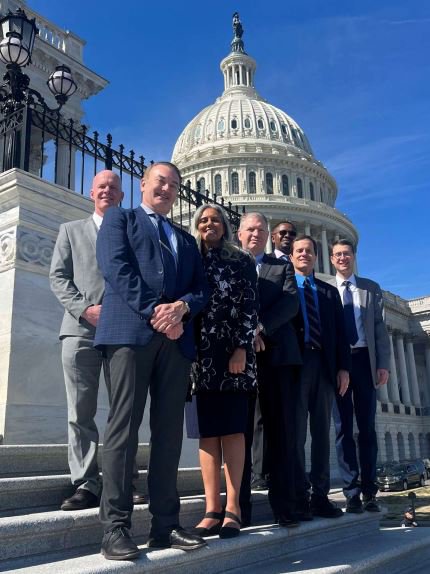Public Power Council Shares Views on Bonneville, Rates, Fish and Wildlife Investments
- August 25, 2023
- Carol Winkel

Scott Simms, CEO and executive director of the Public Power Council, briefed the Council on its current key initiatives. The Public Power Council’s members include a wide range of consumer-owned utilities in seven Western states, in Washington, Oregon, Idaho, Montana, Nevada, Utah, and Wyoming, with a legal and historic first right to federal power. Preserving the affordability, reliability, and value of the Bonneville Power Administration is an overarching goal of PPC.
Simms reviewed its priorities and efforts in these areas:
- Rates: Ensure prudent spending, adequate funding for customer priorities, and maintain accountability
- Bonneville Contracts Post 2028: Focus on Bonneville’s ability to offer the best array of options for customers
- Fish and Wildlife Mitigation: Increase effectiveness and value of investments; protect customer interests and exposure to new costs; litigate when necessary
- Market Development and Resource Adequacy: Protect Bonneville customers’ interests and maximize revenue opportunities
- Columbia River Treaty: Represent the customers’ interest on entitlement rebalancing with Canada and working to wall off new cost exposure
During the question-and-answer portion of the presentation, Council members probed Simms about fish and wildlife investments and resource adequacy.
Member Pitt made the pointed observation that “Dams hurt fish…We need to deal with hard facts, and one of them is that dams harm fish and this has had an impact on tribal life and everybody’s life.”
Simms noted that all resources—solar, wind, coal, natural gas—have impacts. “Let’s focus on what we can agree on: investments in hatcheries, habitat work, efforts to reduce predation. These are areas where we can cooperate.”
Simms identified non-tribal harvest reform as an important area to examine and said PPC was committed to the longevity of salmon and the cultural traditions of the Northwest.
Chair Allen asked, “What does the PPC see in terms of dependable capacity resources on the generation side?”
In describing the challenges we face on this point, Simms noted that the current heat wave we're experiencing in an example of peak events that are happening with greater regularity.
“Temperatures we used to see every 10 or 20 years are occurring, and breaking records, in successive years,” he said.
“At the same time, we’re seeing more electric vehicles, retirement of natural gas in homes and businesses, so the need is growing and the resource picture is declining—so a lot is happening fast.”
Member Purce asked, “Can you articulate a realistic approach to how we deal with balancing our responsibilities to salmon and our responsibilities to maintaining an adequate and affordable power system?”
Simms agreed that prosperity includes the value of cultural traditions and healthy habitat, noting that land set asides, estuary improvements, hatchery efforts, reducing predation, and hydropower system reforms were the right investments.
He also noted that there were a lot of actions that don’t get recognized but that make a big difference, like culvert replacements.
Member Purce pressed his point, asking, “Would you comment on the 500 million salmon obligation; what is our mutual responsibility?”
Simms, again, highlighted the need for harvest reform; to get a better understanding of the impact of commercial offshore take from countries like South Korea and Japan, for example.
“We’re producing all these fish; we need to figure out what’s going on in the ocean and rivers with other non-tribal parties. There’s a massive take rate that we’re not aware of; we need to look at that.”
Noting the concerns about reliability, Member Grob asked how we can ensure that utilities will add to their resource portfolios.
Simms noted the importance of certainty and the need for flexibility in Bonneville’s contract offerings post 2028.
“We need to make sure utilities have the confidence to plan their resource additions so that they’re not penalized, and conservation needs to be encouraged,” said Simms.
“There is more to come,” he concluded.



